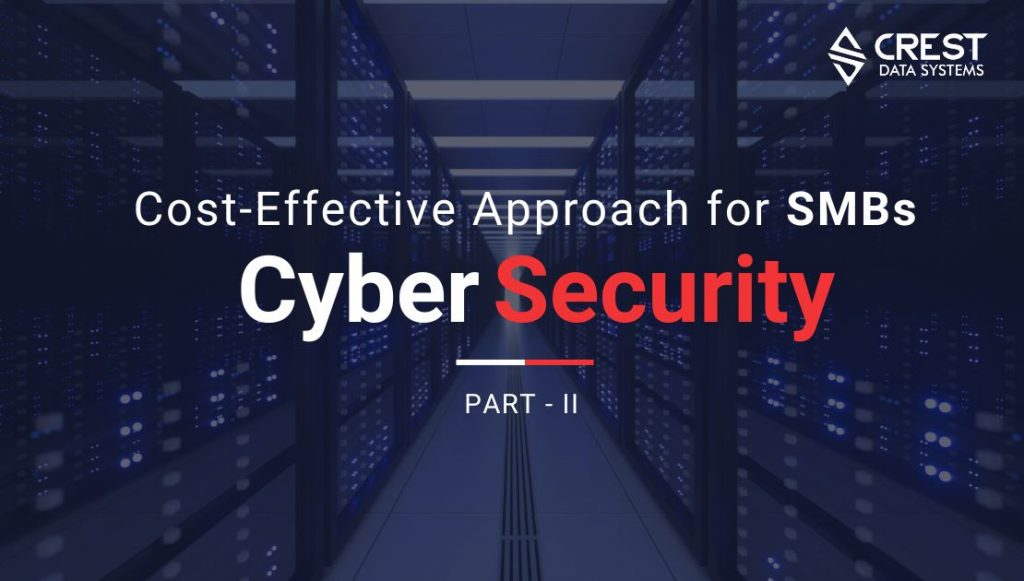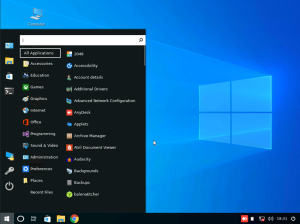In today’s digital landscape, cybersecurity for SMBs is not just a necessity; it’s a critical component of business survival. Research from VikingCloud underscores the alarming reality that nearly 20% of small and medium-sized businesses could face permanent closure following a successful cyberattack. Even minor incidents, costing less than $10,000, could lead to significant operational disruptions, turning the spotlight on the importance of small business cybersecurity. With inflation and recession concerns looming, cybersecurity has now emerged as the second most pressing issue for SMBs, trailing only behind rising costs. This growing awareness highlights the crucial need for robust cyber hygiene for small businesses, ensuring that they remain vigilant against evolving SMB cybersecurity threats, particularly as innovative solutions like AI in cybersecurity begin to reshape the landscape.
As the digital realm expands, protecting smaller enterprises has become paramount. The significant risk posed by cyberattacks has raised awareness among small business owners about their vulnerabilities and the potential cyberattack impact on SMBs. Many of these businesses, often overextended financially and operationally, struggle to deploy effective measures against cyber threats. Yet, basic principles of cyber hygiene seem to evade them, with many still relying on easily compromised passwords and neglecting essential practices like data backup and multi-factor authentication. Investing in cybersecurity resources, including the integration of intelligent systems, can enhance their defenses and prepare them for the modern threat environment.
The Growing Cybersecurity Concerns for SMBs
In recent years, the landscape of cybersecurity threats for small and medium-sized businesses (SMBs) has evolved significantly, leading to increased concern among business owners. A recent study by VikingCloud reveals that nearly 20% of SMBs face the risk of shutdown following a successful cyberattack, highlighting the urgency for proactive cyber measures. With increasing reliance on digital platforms, the potential impact of cyber threats on operational stability has become a pressing issue for many entrepreneurs. Consequently, cybersecurity has emerged as the second most significant concern for SMBs, right after inflation, emphasizing the need for a stronger focus on protective measures.
Many SMB owners are starting to acknowledge the importance of cybersecurity, but a paradox exists where an overwhelming number still display a lack of basic cyber hygiene. Research indicates that while business leaders are aware of the risks, many do not allocate the necessary resources to establish an adequate cybersecurity program. This negligence is evident in the high percentage of respondents who use weak passwords and fail to implement essential security protocols, suggesting that enhanced awareness and education around cybersecurity best practices are vital to protect against potential threats.
Key Cybersecurity Threats Facing Small Businesses
Small businesses are increasingly becoming prime targets for cybercriminals, due to a combination of factors such as limited resources and lack of awareness about SMB cybersecurity threats. Common attack vectors include phishing, ransomware, and social engineering, all of which exploit vulnerabilities inherent in less secure systems. The consequences of these threats are severe, leading to significant financial losses and potential reputational damage that could jeopardize the future of these businesses. Therefore, understanding the characteristics of these threats is crucial for SMBs to develop a robust defense strategy.
Furthermore, the potential impact of a cyberattack on SMBs is staggering, with financial implications that can lead to significant operational challenges. For example, a minor cyber incident can result in costs of less than $10,000, yet this amount is sufficient to threaten the viability of one-third of SMBs facing financial challenges. As the frequency and complexity of attacks continue to rise, small businesses must become more vigilant in recognizing their vulnerability and take proactive steps to safeguard their operations.
Establishing Effective Cyber Hygiene for Small Businesses
One of the most critical steps for small businesses to fortify their defenses is to adopt basic cyber hygiene practices. Cyber hygiene refers to the routine maintenance of IT systems to protect sensitive information from cyber threats. Unfortunately, findings show that many SMBs neglect these practices, with a significant number openly acknowledging their cyber vulnerabilities. For instance, improper password management remains a prevalent issue, with many individuals opting for easily guessable passwords, putting their systems at risk. Basic measures such as using complex passwords, implementing multi-factor authentication, and regularly updating software are essential to ensure continuous protection.
In addition, conducting regular data backups is a fundamental component of maintaining solid cyber hygiene. Currently, a staggering 16% of SMB owners do not back up their data regularly, risking permanent loss in the event of a ransomware attack or data breach. Aligning efforts with established cybersecurity practices, like developing an incident response plan and conducting employee training on security awareness, can significantly enhance the organization’s resilience against potential attacks.
The Role of AI in Strengthening SMB Cybersecurity
As cyber threats become more sophisticated, small and medium-sized businesses (SMBs) are increasingly looking towards artificial intelligence (AI) as a potential solution for bolstering their cybersecurity defenses. Approximately 65% of SMB leaders believe that AI could help manage business functions more effectively, with a focus on cybersecurity. The benefits of AI in this sphere are manifold, ranging from threat detection to providing actionable insights for mitigating risks. This technology can be pivotal in rapidly identifying vulnerabilities and responding to threats before they escalate, ultimately protecting sensitive information.
Moreover, AI can be instrumental in scrutinizing communication channels to flag potential phishing attempts, a common threat targeting small businesses. Surveys indicate that 49% of SMB leaders see AI as a valuable resource for pointing out harmful emails and texts, thereby preventing breaches that could have devastating consequences. By leveraging AI tools, SMBs can enhance their operational soundness, ensuring that they remain one step ahead in the cybersecurity landscape.
Budget Constraints and Cybersecurity Solutions for SMBs
Budget constraints remain a significant challenge for small and medium-sized businesses when investing in cybersecurity solutions. Research reveals that 32% of SMBs do not have the financial capacity to hire additional cybersecurity staff, which hampers their ability to develop a comprehensive security strategy. Limited budgets not only prevent small businesses from employing in-house expertise but also restrict their ability to utilize managed security service providers (MSSPs) that could offer vital support. This gap leaves many SMBs vulnerable to cyber threats due to insufficient resources allocated toward safeguarding their operations.
Despite these financial challenges, it is crucial for SMBs to prioritize cybersecurity investments. Even with a tight budget, businesses can adopt cost-effective solutions such as employee training programs, implementing basic security software, and utilizing AI-driven tools that can enhance overall security without significant expenditure. As cyberattacks evolve, SMBs must find creative ways to leverage available resources and technology to protect themselves against potential threats.
Creating a Sustainable Cybersecurity Strategy for SMBs
Developing a sustainable cybersecurity strategy is essential for the long-term success of small and medium-sized businesses (SMBs) facing increasing cyber threats. Business owners must begin by assessing their current cybersecurity posture, identifying vulnerabilities, and establishing a tailored approach to address potential risks. This involves not only technological investments but also prioritizing employee training and awareness initiatives to cultivate a culture of security within the organization. By embracing a holistic approach to cybersecurity that integrates technology, policy, and personnel, SMBs can significantly enhance their defenses against potential attacks.
Furthermore, engaging with industry peers and cybersecurity experts can provide valuable insights and guidance for building an effective security program. Collaboration can lead to shared best practices, which help SMBs stay informed about emerging threats and innovative solutions in the cybersecurity realm. Ultimately, investing time and resources into developing a robust cybersecurity strategy will empower business owners to minimize the impact of cyber threats and ensure their operations remain resilient in this digital era.
Understanding the Impact of Cyberattacks on SMBs
Analyzing the impact of cyberattacks on small and medium-sized businesses is essential to fully comprehend the risks they face. A successful cyberattack can lead not only to immediate financial losses but also to long-term repercussions, including significant damage to a company’s reputation, which can lead to lost customers and decreased revenues. VikingCloud’s research highlights how immediate impacts, such as an unsuspected breach or ransomware incident, may not fully capture the extensive fallout that can occur, creating a wave of challenges that can threaten the business’s future.
Moreover, the emotional toll on business owners dealing with the aftermath of a cyber incident can be overwhelming. Many SMB leaders report feelings of anxiety and uncertainty when contemplating their exposure to cyber threats, especially considering that nearly one-third would face closure even with minimal financial loss from a cyberattack. Recognizing these impacts is vital for business owners as it’s not just about prevention but understanding the comprehensive effects that cybersecurity breaches can have on their operations.
The Importance of Employee Training in Cybersecurity
Employee training plays a pivotal role in strengthening the cybersecurity framework of small and medium-sized businesses (SMBs). Human error remains one of the leading causes of security breaches; thus, equipping employees with knowledge about potential threats and the best practices to mitigate them is crucial. Regular training sessions can enhance awareness, helping staff recognize phishing attempts, secure sensitive data, and adhere to best practices like robust password management and safe browsing habits. Investing in ongoing education is not merely an add-on but a critical element in fostering a culture of security.
Additionally, organizations must tailor training programs to address the specific needs and risks faced by their staff. Implementing scenarios that reflect real-life threats enables employees to practice responses in a controlled environment, ultimately empowering them to act decisively when encountering actual security threats. By prioritizing employee training and creating a proactive mindset towards cybersecurity, SMBs can significantly reduce their vulnerability to attacks and strengthen their overall security posture.
Integrating Technology to Enhance Cybersecurity for SMBs
The integration of advanced technology is vital for small and medium-sized businesses (SMBs) seeking to enhance their cybersecurity measures in today’s digital landscape. Tools such as firewalls, antivirus software, and intrusion detection systems form the backbone of a basic security infrastructure. However, many SMBs fail to fully leverage modern technologies like AI and machine learning to bolster their defenses. By adopting these advanced solutions, businesses can gain predictive capabilities to identify and mitigate threats before they cause significant damage, paving the way for a proactive instead of reactive approach to cybersecurity.
Moreover, the incorporation of automation technologies can streamline security processes, reducing the burden on overextended employees. For instance, automated monitoring systems can continuously analyze network activity for signs of a cyberattack, allowing for timely alerts and response measures. This is especially important for SMBs that may lack the necessary resources to maintain an in-house cybersecurity team. By investing in technology, small businesses can enhance their operational resiliency and better protect their digital assets from evolving cyber threats.
Frequently Asked Questions
What are the common cybersecurity threats for SMBs?
SMB cybersecurity threats include phishing attacks, ransomware, malware, and data breaches. These threats often target the vulnerabilities that small businesses typically have due to limited resources and lack of cyber hygiene practices.
How can small businesses improve their cybersecurity measures?
Small businesses can enhance their cybersecurity by adopting basic cyber hygiene practices, such as implementing multi-factor authentication, regularly updating software, using strong passwords, and backing up data. Establishing a comprehensive cybersecurity policy is also essential.
What is the impact of cyberattacks on SMBs?
The impact of a cyberattack on SMBs can be severe, with nearly one in five small businesses forced to shut down following a successful breach. Even attacks with minor financial impacts, such as losses under $10,000, can lead to closure for a significant portion of SMBs.
Why is cyber hygiene important for small businesses?
Cyber hygiene is crucial for small businesses because it helps mitigate the risk of cyberattacks. By adopting good practices like regular updates, strong passwords, and data backups, SMBs can protect their operations and customer data from threats.
How can AI be utilized in cybersecurity for SMBs?
AI in cybersecurity can help SMBs manage threats more effectively by identifying potential risks before they materialize, flagging phishing attempts, and providing real-time recommendations for responding to threats.
What percentage of SMBs lack a good cybersecurity strategy?
Research indicates that a significant percentage of SMBs are not fully prepared for cybersecurity challenges. For example, 32% lack the budget for additional cybersecurity staff, and only 15% have invested in hiring internal IT or outsourcing to Managed Security Service Providers.
What are essential tools for small business cybersecurity?
Key tools for small business cybersecurity include antivirus software, firewalls, network scanning software, and endpoint security solutions. However, many SMBs remain underprotected against modern threats.
Why do many SMBs continue to use weak passwords despite knowing their vulnerabilities?
Many SMBs continue to use weak passwords due to a lack of awareness and resources. Although 80% acknowledge their cyber vulnerabilities, habits like using easily compromised passwords remain prevalent, indicating a gap in cyber hygiene.
How does the economic climate affect cybersecurity concerns for SMBs?
The economic climate significantly affects SMB cybersecurity concerns, with inflation and rising costs being the top priority. However, cybersecurity has emerged as the second most significant concern, highlighting its critical role in business sustainability.
What role does backing up data play in small business cybersecurity?
Backing up data is essential for small business cybersecurity as it protects against data loss from cyberattacks, including ransomware. Regular backups ensure that SMBs can restore their operations swiftly in case of a breach.
| Point | Details |
|---|---|
| Impact of Cyberattacks on SMBs | Nearly 1 in 5 SMBs may shut down after a cyberattack. |
| Financial Threshold for Closure | A third of SMBs could close for cyberattacks costing under $10,000. |
| Concerns Ranking | Cybersecurity is the second most significant concern for SMBs (48%), following inflation (67%). |
| Cyber Awareness | SMBs are often unaware of their cyber vulnerabilities, making them easy targets for attacks. |
| Basic Cyber Hygiene | 80% acknowledge cyber vulnerabilities but use weak passwords, and 16% never back up data. |
| Usage of Cybersecurity Tools | 50% use antivirus software, 47% use network scanning, but many lack advanced tools like endpoint security (29%). |
| Budget Constraints | 32% lack budget for cybersecurity staff; only 15% have hired IT employees or used MSSPs. |
| AI in Cybersecurity | 65% see AI as a solution for managing cybersecurity effectively, particularly in threat identification (55%). |
Summary
Cybersecurity for SMBs is an increasingly critical concern, as research indicates that many small and medium-sized businesses are vulnerable to cyberattacks that could lead to their closure. While many SMBs recognize the importance of cybersecurity, a significant gap exists in their preparedness, often compounded by limited resources and budget constraints. Implementing basic cyber hygiene practices and advanced security measures is essential for protecting these businesses from financial losses and operational disruptions. By leveraging technology, including artificial intelligence, SMBs can enhance their threat detection and response capabilities, ensuring their sustainability in today’s digital landscape.




